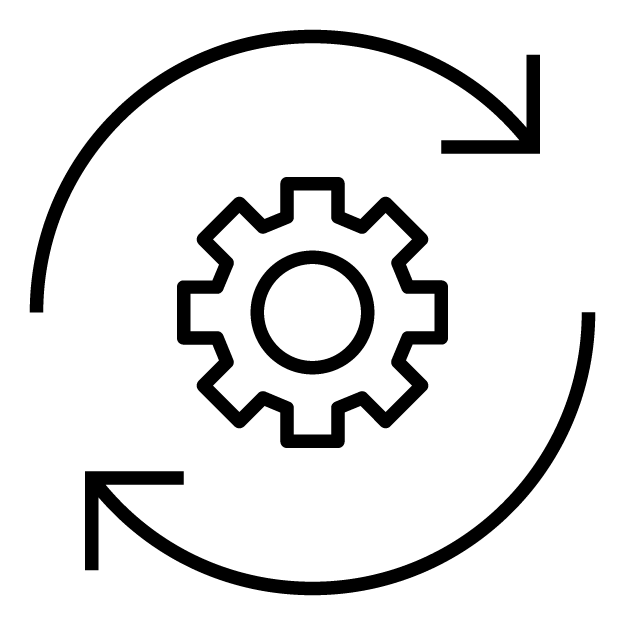A secure network is crucial for any business. This includes not just computers and servers, but also the underlying infrastructure that keeps everything connected: routers, switches, firewalls, and other Internet of Things (IoT) devices. Here’s why prioritizing device security is crucial

Routers, firewalls, and other devices act as gatekeepers, controlling access to your network. Strong security prevents unauthorized users from stealing confidential data like customer records or financial information.

Network breaches can cripple operations by disrupting communication and access. Secure devices minimize the risk of malware and hacking attempts, ensuring smooth business continuity.

Many industries have data protection regulations. Robust device security demonstrates compliance with these regulations, avoiding potential fines and legal issues.

Cybercriminals constantly develop new techniques. Regularly updating and patching devices ensures they have the latest defenses against evolving threats.

Securing devices with strong passwords and proper configurations helps prevent damage from malware and unauthorized access, extending their lifespan and saving on replacement costs.

Data breaches can severely damage a company’s reputation. Prioritizing device security shows customers you take their information seriously, fostering trust and loyalty.
Develop a Baseline: Create a configuration baseline that aligns with industry standards (e.g., NIST, CIS Benchmarks, NVD) and your organization's security policies
Compliance Requirements: Identify any specific compliance requirements (e.g., PCI DSS, HIPAA) that your configurations need to adhere to.
List Devices: Compile an inventory of all network devices including routers, switches, firewalls, and other network appliances.
Device Information: Gather necessary information for each device, such as make, model, OS version, and IP address
Backup Configurations: Use tools or scripts to backup current configurations of each device. This step is crucial for recovery in case of misconfigurations.
Automate When Possible: Consider using configuration management tools (e.g., Ansible, Puppet) for automating backup processes.
Compare Against Baseline: Manually or with the help of automated tools, compare the extracted configurations against your defined baseline to identify deviations.
Security Vulnerabilities: Look for common security vulnerabilities such as default passwords, unnecessary services running, or open ports.
Record Deviations: Document any deviations from the baseline or security best practices, including potential impacts.
Risk Assessment: Perform a risk assessment on identified issues to prioritize their remediation based on severity.
Plan Remediation: Develop a remediation plan for each identified issue, considering the potential impact on network operations.
Change Management: Follow your organization's change management process to implement changes, ensuring minimal disruption to services.
Review Changese: After implementing changes, review configurations again to ensure that the issues have been resolved and no new issues have been introduced..
Continuous Monitoring: Set up continuous monitoring and alerting for configuration changes to maintain security posture over 0me..
Prepare a Final Report: Compile your findings, actions taken, and any recommendations for future reviews into a final report.
Presentation: Present the findings to relevant stakeholders, including management and technical teams, to ensure awareness and discuss any further actions.
Our advanced security solutions employ multi-layered protection to identify and neutralize viruses, malware, and zero-day attacks before they compromise your devices.
Ensure uninterrupted operations with our robust data encryption and backup solutions. Minimize downtime and financial losses in the event of a security breach.
Stay ahead of regulatory requirements with our team of security specialists. Don't get compliance headaches! We’ll make industry standards a breeze for your devices.
Our dedicated team of security professionals is here to support you round the clock. Get expert guidance, troubleshooting assistance, and ongoing security best practice consultations.
Simplify device security with our centralized platform. Gain real-time visibility, enforce security policies across your organization, and automate critical tasks for effortless administration.
Our commitment to ongoing research ensures our solutions stay ahead of ever-evolving cyber threats. Benefit from real-time threat intelligence and proactive security updates.
Our security solutions are built to adapt and grow with your business. Protect everything from laptops and desktops to mobile devices and emerging internet-of-things (IoT) technologies.
We have a well-established reputation for providing exceptional device security solutions, keeping our clients' data and devices safe.
Unsecured routers, and leaky IoT devices – these vulnerabilities can be a goldmine for attackers. Ensure every device on your network adheres to your security policies, preventing breaches and safeguarding sensitive data. We offer a solution that simplifies device management and enforces best practices, so you can focus on your business, not vulnerabilities.
Talk to Delivery Head
Choose devices with strong security features and keep them updated. Change default passwords, disable unused features, and consider isolating them from your main network. Digital Defence can conduct security audits to identify and address vulnerabilities in your IoT ecosystem.
Regularly review your policies, conduct penetration testing, and monitor security logs for suspicious activity. Digital Defence assists with policy development, penetration testing, and ongoing monitoring to ensure your security remains strong.
Investing in device security minimizes the risk of costly data breaches, protects intellectual property, and fosters a secure work environment.
The time and effort required for threat modeling vary based on the size and complexity of the system. It can be a relatively quick process for simple systems but may require more time for complex ones.